Game-theoretical Motion Planning - Tutorial ICRA '21
The Download Monograph (PDF, 16.5 MB) is now available online!
Tutorial info:
- When: 31st of May at 13:50 UTC (see the Schedule below for more details)
- Where: Via zoom at external page this link for all the talks
- Where (2): external page Gathertown for breaks, final discussion, and more
- Registration: external page https://forms.gle/3WP9c9uFMsXsJcev5
- Gdoc for Q&A: external page here
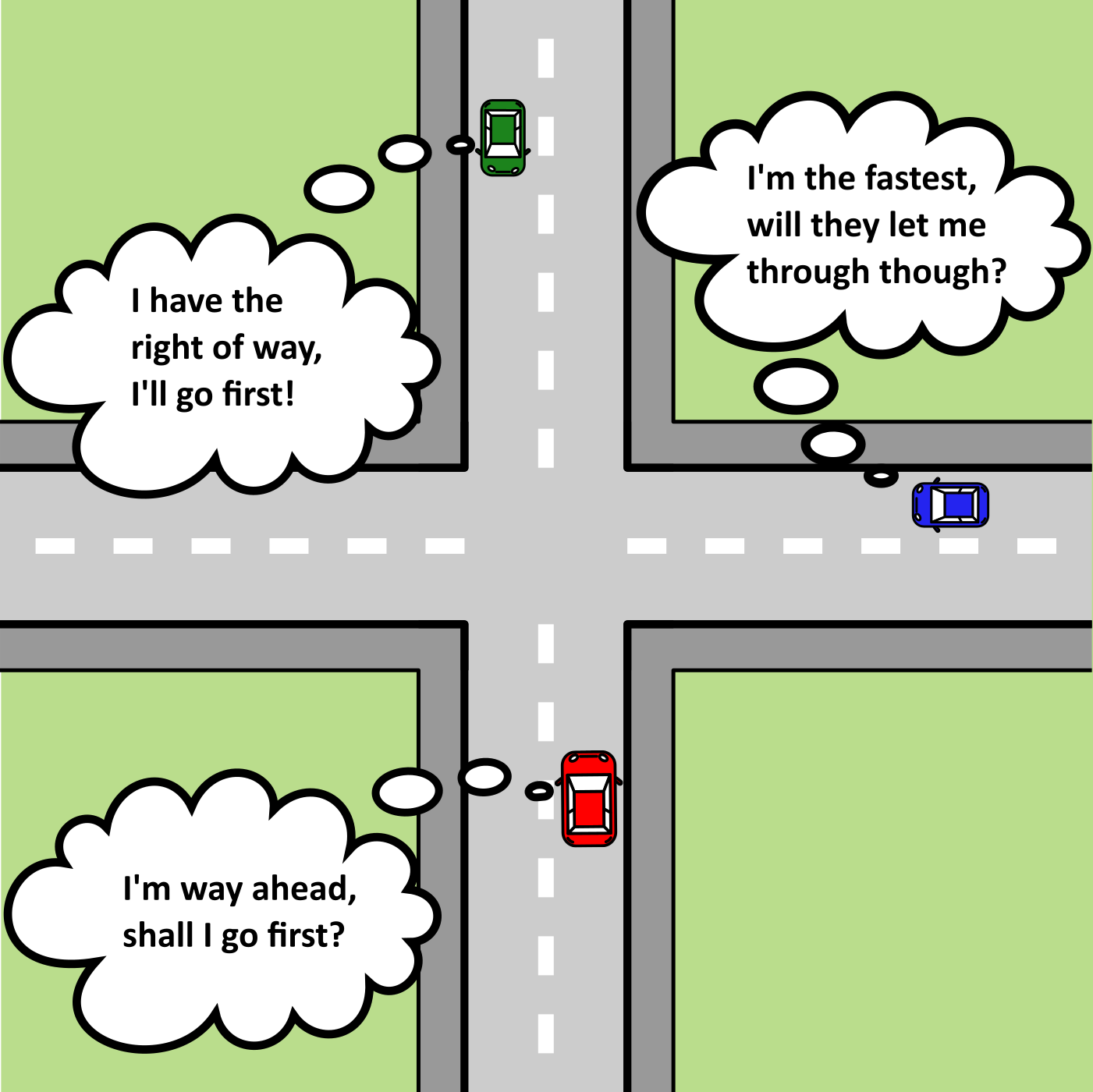
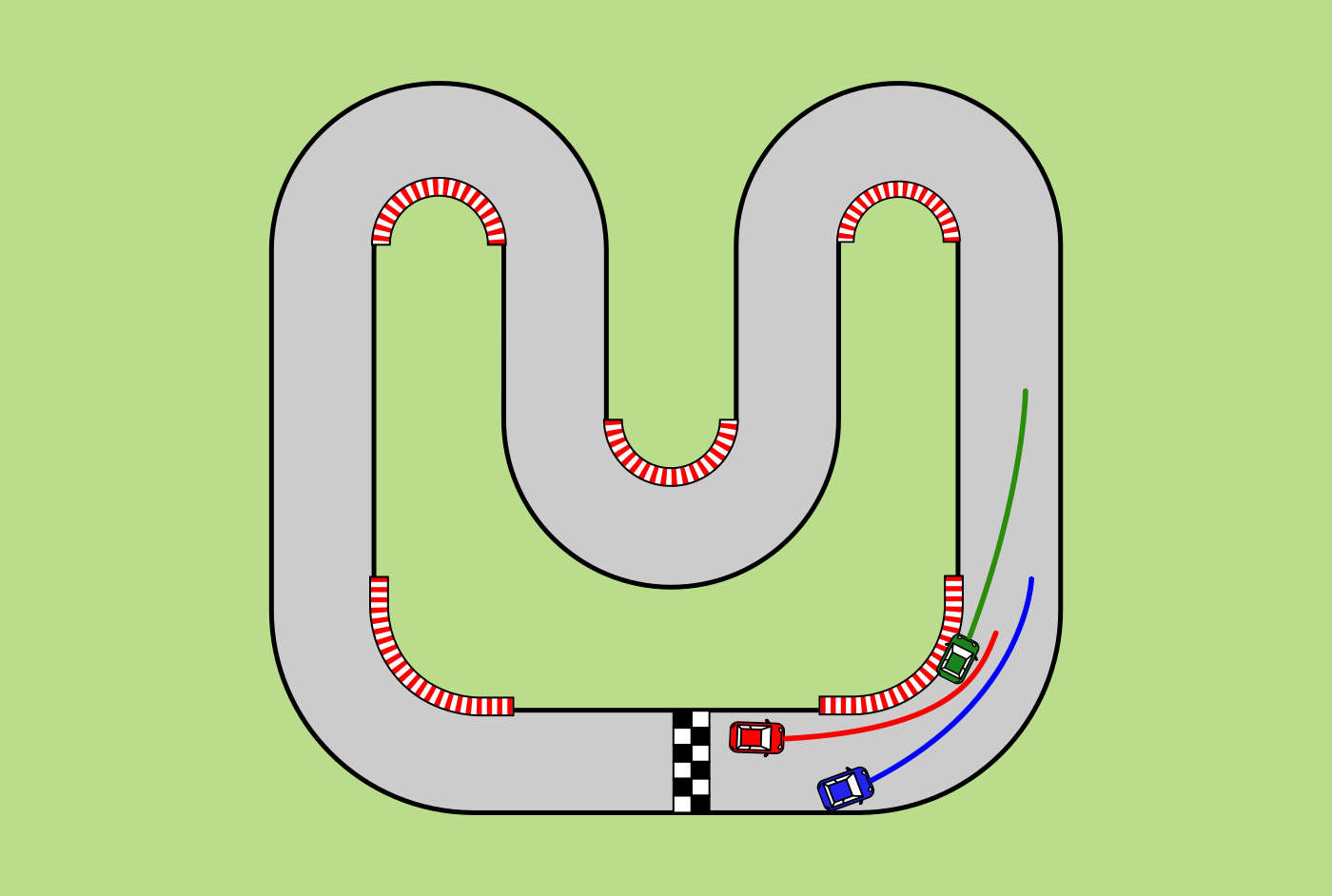
Why more game theory is needed in robotics?
Game-theoretic methods are useful for both competitive settings like racing as well as for non-competitive settings like urban driving.
We live in a decade where robots are leaving the factory floors for a more complex world with heterogeneous agents which require a rational and systematic way of interacting.
The current progress in innovative applications of robotics such as drone delivery or autonomous driving has highlighted the importance of a decision making process that accounts explicitly for others agents and the related uncertainties.
We do believe that an advisable future is one where autonomous agents take rational decisions in full awarness of the risk the are undergoing.
Recorded talks

- Location: external page zoom (for all the talks), external page gathertown (for all the breaks and final discussion)
- Day: May 31st, 2021
Join the external page official calendar for the event! Below, you find the detailed schedule.
All the times are in UTC.
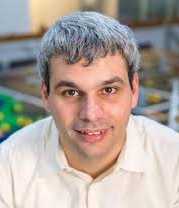
external page Andrea Censi, acensi@ethz.ch
Andrea Censi is deputy director of the Dynamic Systems & Control chair. He obtained a Ph.D. from Caltech. Previously, he has been a research scientist at MIT and Director of Research at Aptiv Mobility (now Motional). He is president of the Duckietown Foundation.

Saverio Bolognani, bsaverio@ethz.ch
Saverio Bolognani received the Ph.D. degree in Information Engineering from the University of Padova, Italy, in 2011. In 2013-2014 he was a Postdoctoral Associate at the Laboratory for Information and Decision Systems of the Massachusetts Institute of Technology in Cambridge (MA). He is currently a Senior Researcher at the Automatic Control Laboratory at ETH Zurich. His research interests include the intersection of game theory and control, real-time optimization of smart power systems, distributed control and optimization, and cyber-physical systems.
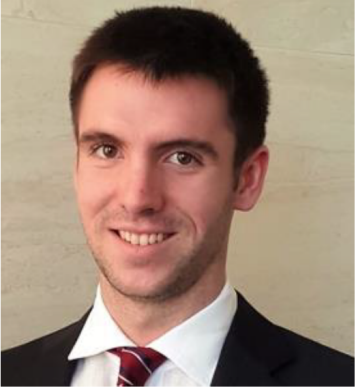
Alessandro Zanardi, azanardi@ethz.ch
Alessandro Zanardi is a PhD student at ETH Zurich jointly supervised by Prof. E. Frazzoli and Prof. F. Dörfler. He obtained his BSc degree from Politecnico di Milano and his MSc degree from ETH Zurich. During the studies he worked as an intern at ABB research center in Germany for optimization of power grid and automatic fault analysis. The current research focuses on decision making for autonomous agents.

Emilio Frazzoli, efrazzoli@ethz.ch
Emilio Frazzoli is a Professor of Dynamic Systems and Control at ETH Zurich, and CSO of Motional. His main research interest are in robotics, autonomous systems, and intelligent mobility. In acknowledgement of his seminal work in these fields, Emilio has received numerous awards, including the the 2015 IEEE George S. Axelby Award and the 2017 IEEE Kiyo Tomiyasu Award, and has been named an IEEE Fellow in 2019. Emilio has published more than 200 papers in the fields of robotics, autonomous vehicles, and drones. A former full professor at MIT, he directed the research group that first demonstrated an autonomous mobility (“robotaxi”) service to the public, and performed the first analysis of the social and economic impact of such a service, based on real transportation data. In 2013 he founded nuTonomy with Karl Iagnemma, and served as its Chief Technology Officer until its acquisition by Aptiv in 2017.
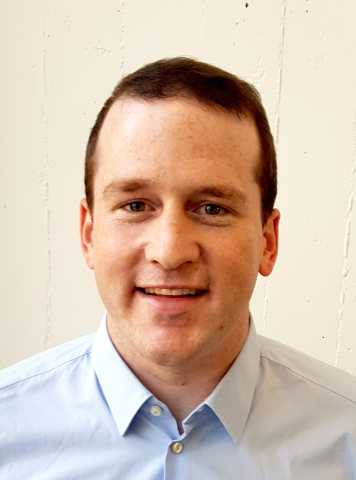
Alexander Liniger
Alex received the B.Sc. and M.Sc. degrees in mechanical engineering from the Department of Mechanical and Process Engineering, ETH Zurich, Switzerland, in 2010 and 2013, respectively, and in May 2018 succesfully defended his PhD degree at the Automatic Control Laboratory, ETH Zurich, Switzerland. Currently he is a Postdoctoral Researcher in the Computer Vision Lab, ETH Zurich, Switzerland, where he is part of Luc van Gool's group working in the Toyta TRACE project. During his PhD his main research interests include model predictive control, viability theory as well as game theory and their application to autonomous driving and racing. Currently, he is investigating how control theory and computer vision can be combined to achieve end-to-end learning approaches with formal guarantees.
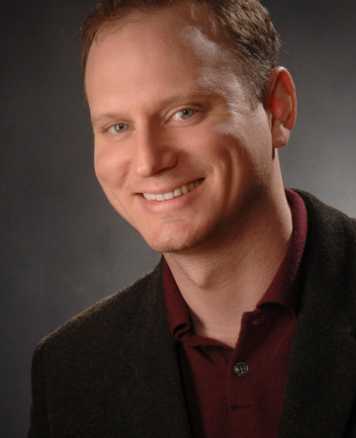
external page Mac Schwager
Assistant Professor in Aeronautics and Astronautics at Stanford University since September 2015. Previously he was an Assistant Professor in the Department of Mechanical Engineering and the Division of Systems Engineering at Boston University from January of 2012 to June 2015. His current research interests are in distributed algorithms for coordination, estimation, and learning in groups of robots and animals.
Please register here: external page https://forms.gle/Q43cd4FWSUNTd4Xe9
The collected emails will be used ONLY for emergency updates and notification of availability of material.
The partecipation to the live tutorial and talks is completly free (no need to be registered at the conference), simply join at the right time!
Recorded talks: available on external page youtube
Monograph: at this Download link (PDF, 16.5 MB)
Google doc for Q&A: at this external page link